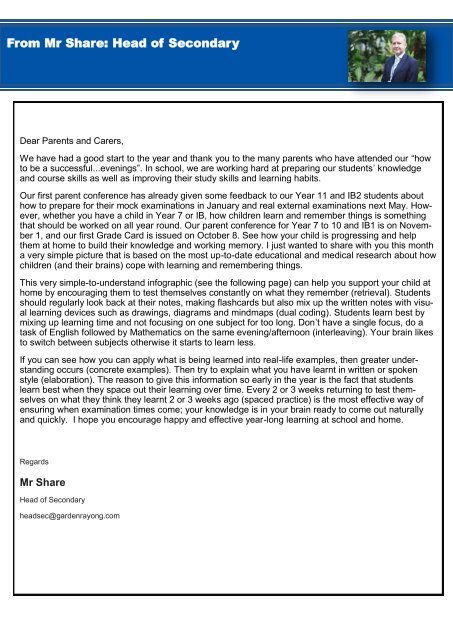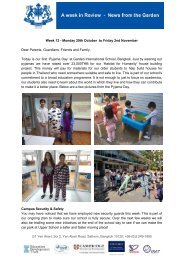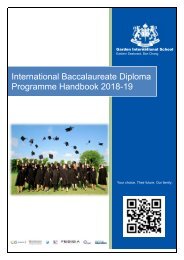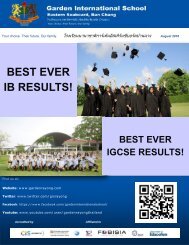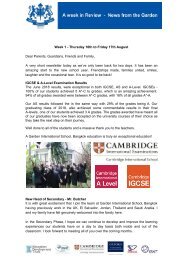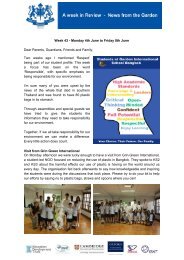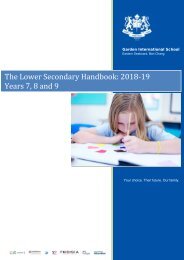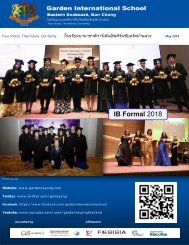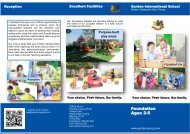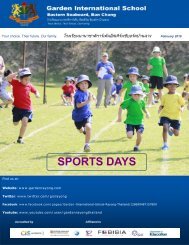September 2018
Create successful ePaper yourself
Turn your PDF publications into a flip-book with our unique Google optimized e-Paper software.
From Mr Share: Head of Secondary<br />
Dear Parents and Carers,<br />
We have had a good start to the year and thank you to the many parents who have attended our “how<br />
to be a successful...evenings”. In school, we are working hard at preparing our students’ knowledge<br />
and course skills as well as improving their study skills and learning habits.<br />
Our first parent conference has already given some feedback to our Year 11 and IB2 students about<br />
how to prepare for their mock examinations in January and real external examinations next May. However,<br />
whether you have a child in Year 7 or IB, how children learn and remember things is something<br />
that should be worked on all year round. Our parent conference for Year 7 to 10 and IB1 is on November<br />
1, and our first Grade Card is issued on October 8. See how your child is progressing and help<br />
them at home to build their knowledge and working memory. I just wanted to share with you this month<br />
a very simple picture that is based on the most up-to-date educational and medical research about how<br />
children (and their brains) cope with learning and remembering things.<br />
This very simple-to-understand infographic (see the following page) can help you support your child at<br />
home by encouraging them to test themselves constantly on what they remember (retrieval). Students<br />
should regularly look back at their notes, making flashcards but also mix up the written notes with visual<br />
learning devices such as drawings, diagrams and mindmaps (dual coding). Students learn best by<br />
mixing up learning time and not focusing on one subject for too long. Don’t have a single focus, do a<br />
task of English followed by Mathematics on the same evening/afternoon (interleaving). Your brain likes<br />
to switch between subjects otherwise it starts to learn less.<br />
If you can see how you can apply what is being learned into real-life examples, then greater understanding<br />
occurs (concrete examples). Then try to explain what you have learnt in written or spoken<br />
style (elaboration). The reason to give this information so early in the year is the fact that students<br />
learn best when they space out their learning over time. Every 2 or 3 weeks returning to test themselves<br />
on what they think they learnt 2 or 3 weeks ago (spaced practice) is the most effective way of<br />
ensuring when examination times come; your knowledge is in your brain ready to come out naturally<br />
and quickly. I hope you encourage happy and effective year-long learning at school and home.<br />
Regards<br />
Mr Share<br />
Head of Secondary<br />
headsec@gardenrayong.com


